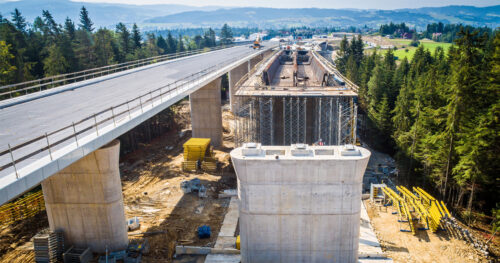California Infrastructure Plan Passes; Governor’s CEQA and Species Reforms are Narrowed, but Signed into Law
July 12, 2023
In June we reported that California Governor Gavin Newsom’s infrastructure permitting and CEQA reform legislation package was mostly dead, with the Legislature finding it too complex for last-minute consideration. But there’s a big difference between mostly dead and all dead. Legislators and the Governor subsequently reached a tentative agreement to allow a pared-down version of the plan to proceed. Last week, the Legislature passed the modified package, and on July 10, 2023, the Governor signed the bills into law.
Although the new legislation does not fundamentally reform California’s notoriously complex environmental review process, the new laws nonetheless provide minimal reforms worth understanding. The CEQA reforms in SB 149 target litigation – a source of costly delays for both private and public projects. All projects will benefit from modest changes to the administrative record process. Additionally, qualifying infrastructure projects will be eligible for litigation streamlining. Among the two dozen bills is also SB 147, which eases protections for several dozen “fully protected” wildlife species, allowing issuance of take permits under the California Endangered Species Act (CESA) in some cases.
All this purports to smooth the path to completion for projects the Governor says “will power our homes and electric vehicles, store and deliver our water, modernize our transportation infrastructure and create a 100% clean electric grid.” Newsom negotiated the package as part of California’s 2023-2024 budget approval process, securing its passage by, among other compromises, removing the controversial Delta Conveyance Project from eligibility.
CEQA Reforms
SB 149’s CEQA-oriented reforms include two broad categories of provisions: (1) judicial streamlining designed to expedite litigation for qualifying infrastructure projects; and (2) reforms to CEQA’s administrative record process for all CEQA cases.
Judicial Streamlining for Infrastructure Projects
First, the bill builds on previous judicial streamlining legislation (most recently, SB 7), requiring courts to resolve CEQA litigation involving qualifying projects within 270 days to the extent feasible. As we’ve reported, the judiciary have largely succeeded in resolving these cases markedly faster than most CEQA cases.
This bill makes four new classes of projects eligible for judicial streamlining: energy-related projects, transportation-related projects, water-related projects, and semiconductor projects. Eligible sub-categories are defined within each class.
Most projects will be required to meet labor wage standards and achieve no-net-increase in greenhouse gas emissions to qualify, though water-related project are exempt from the latter requirement. The lead agency must also prepare the administrative record concurrently with environmental review.
The Governor must certify and public agencies must approve projects by January 1, 2033 for them to qualify for streamlined litigation benefits, and the bill sunsets the following year.
Administrative Record Changes
SB 149 also makes modest reforms to hasten preparation of the administrative record—perhaps the most laborious and time-consuming stage of CEQA litigation. The biggest change in this arena is a new provision allowing agencies to veto a petitioner’s election to prepare the administrative record. The agency must do so within five days of receiving petitioner’s notice of election to prepare, which may not be long enough to meaningfully consider the option in many cases. If the agency does exercise the veto, it waives its ability recover the costs associated with preparing the record, which are otherwise recoverable. Though the reform is intended to benefit agencies, it may also incentivize all petitioners to elect to prepare the record, whether or not they are capable of doing so, in an effort to avoid the risk of paying those costs.
The bill also puts limited constraints on the contents of the administrative records by excluding logistical communications like emails related to meeting invitations and scheduling, as well as anything falling under a California Public Records Act exemption. In practice, many administrative records already exclude these types of documents.
Reforms to Species Protection Policy
The second bill, SB 147, creates a pathway for California’s Department of Fish and Wildlife (CDFW), through 2033, to issue permits that allow certain infrastructure projects to “take” species currently designated as “fully protected.” The fully protected statutes currently list 37 such species, including golden eagles and the unarmored threespine stickleback. While incidental take permits can be issued under the State and federal Endangered Species Acts, the fully protected statutes currently prohibit this. The new law authorizes CDFW to issue take permits under CESA to qualifying infrastructure projects, including for impacts to fully protected species, so long as they fully mitigate the impacts of the authorized take. As with the CEQA reform bill, the Delta Conveyance Project is explicitly ineligible for the benefits of SB 147.
The Upshot
As urgency statutes, the provisions all take effect immediately. While some may criticize the reforms as being too incremental, the Governor may be counting himself lucky to get even these modest measures out this year. They certainly can’t hurt his ultimate goals—expressed in Executive Order N-8-23—of upgrading the state’s infrastructure in a timely manner and acquiring federal funding to do so.

